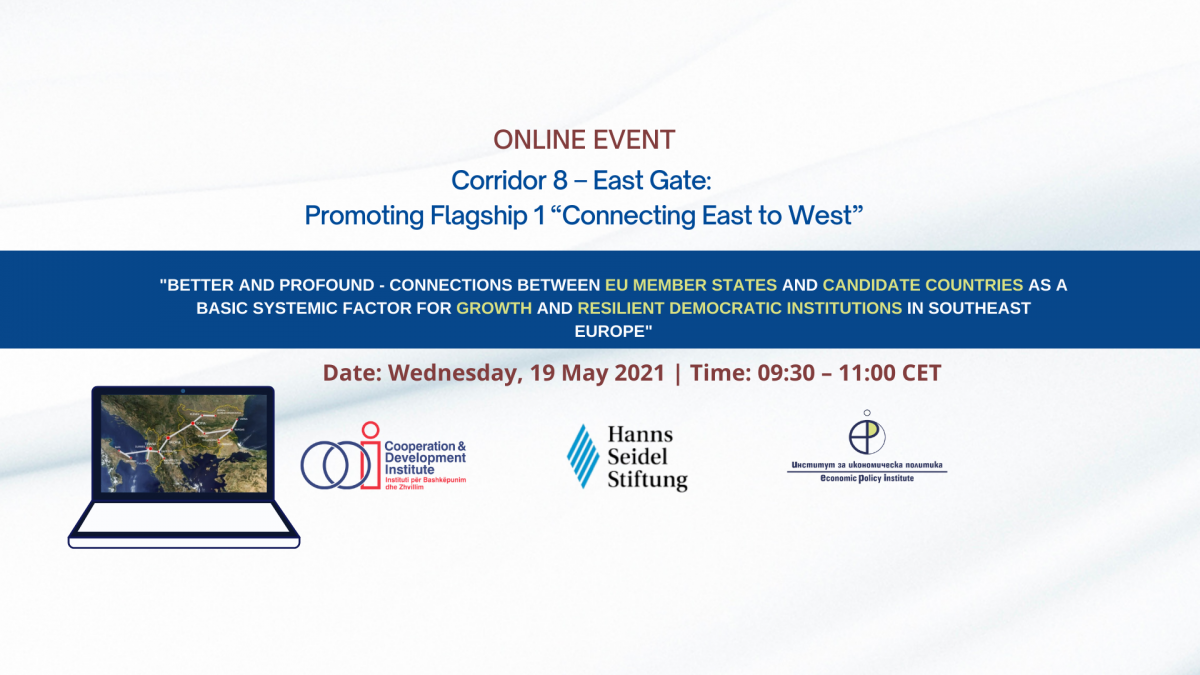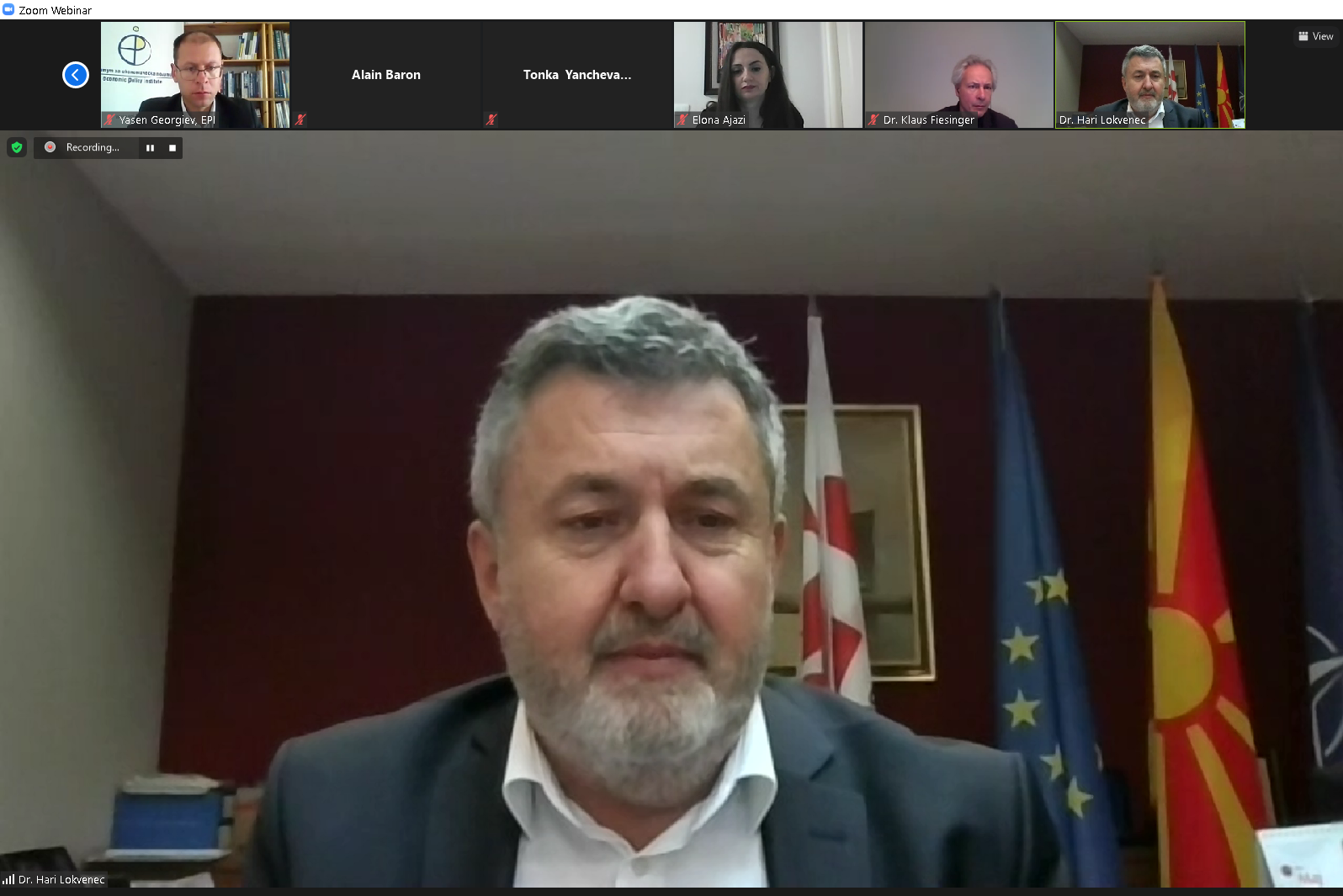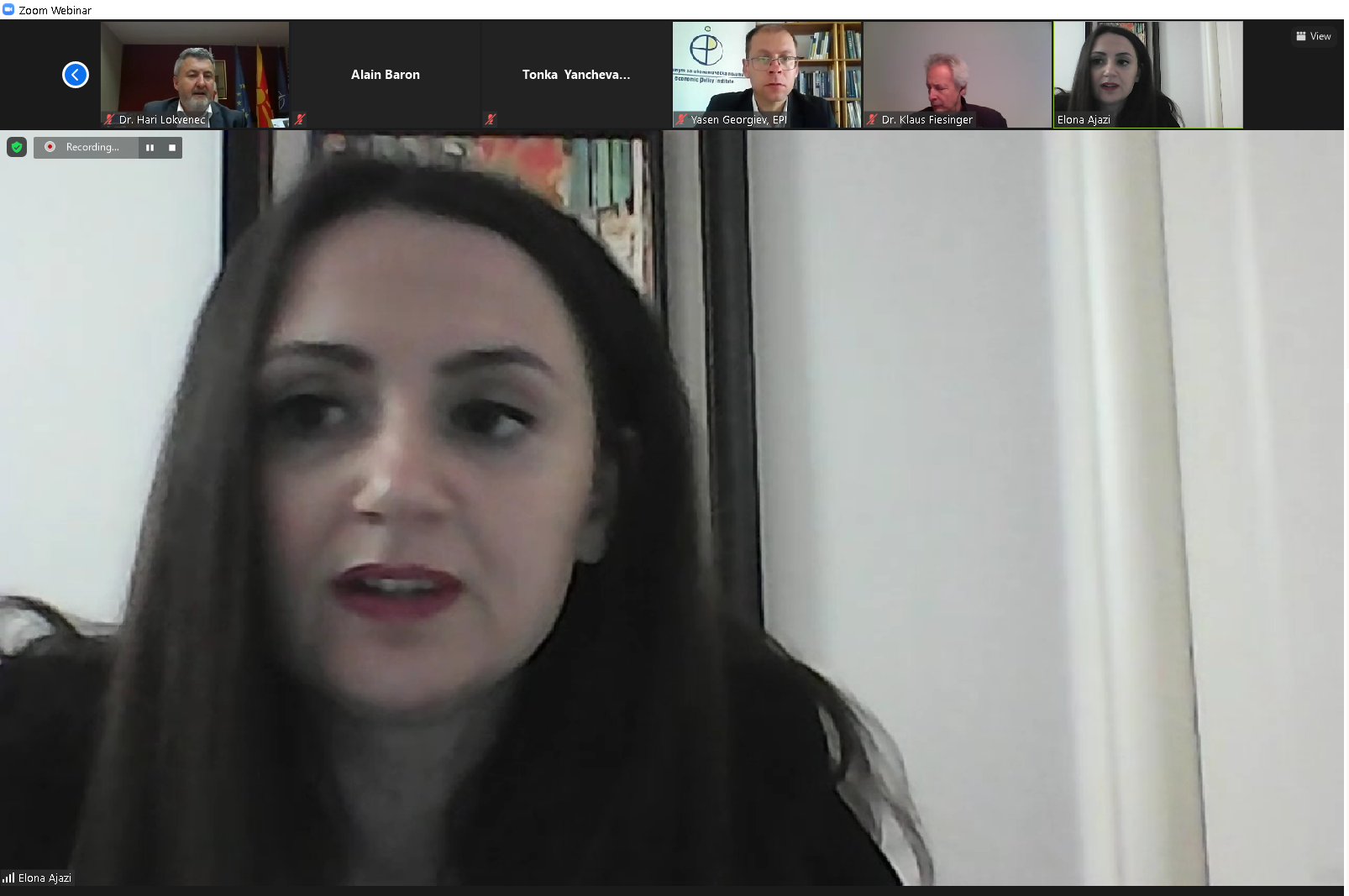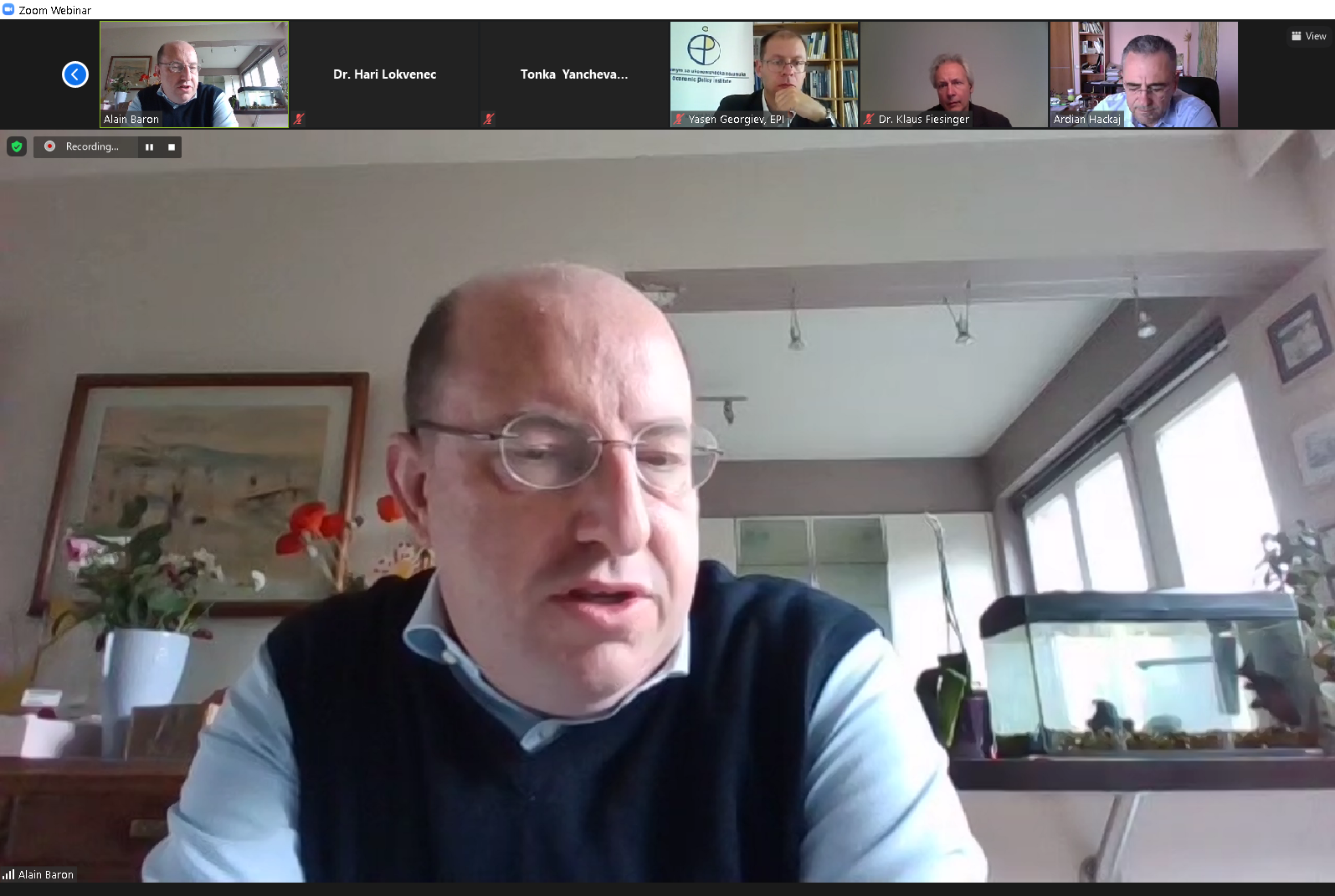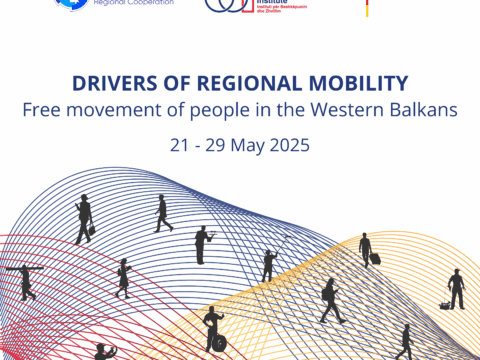19 May 2021
Cooperation and Development Institute (CDI) in partnership with Economic Policy Institute in Sofia and supported by Hanns Seidel Stiftung (Tirana Office) organized on May 19, 2021 an online event on “Corridor 8 – East Gate: Promoting Flagship 1 “Connecting East to West”.
Under the rationale of “Better and profound – connections between EU member states and candidate countries as a basic systemic factor for growth and resilient democratic institutions in Southeast Europe”, its aim was to promote Corridor VIII as an example of regional cooperation in South East Europe contributing to region’s growth and development. It also provided insights with regard to other projects / Flagships, and; ii) its synergies with the Initiative 8.
In the welcoming remarks Mr. Ardian Hackaj, Research Director, Cooperation and Development Institute (CDI) who explained the context of this webinar as a technical platform where Corridor VIII stakeholders from Bulgaria, North Macedonia and Albania, joined by EU Commission can present the state of advancement of the Flagship 1 “Connecting East to West – rail” Initiative of the Economic and Investment Plan. In his address, Dr. Klaus Fiesinger, Regional Director for Southeast Europe of Hanns-Seidel-Foundation highlighted the importance of Corridor VIII in the connectivity between east and west, especially when neighbors are Member Countries
Mr. Yasen Georgiev, Executive Director of Economic Policy Institute in Sofia delivered a presentation on “Bulgaria as the East Gate of Corridor 8”. Regional connectivity should not be limited to classical infrastructure only, but also include transportation, energy and digital links. Backed by a strong economic rationale Bulgarian stakeholder are progressing with Corridor VIII. However, funding sources complementary to the national budgets, such as EU funding, IFS, Recovery and Resilience Facility, Western Balkans Investment Framework (WBIF), Three Seas Initiative Investment Fund, etc., are needed.
Building a multi-modal corridor requires a sound economic rational and stability, stated Mr. Alain Baron, Directorate General for Mobility and Transport (DG MOVE), European Commission. Corridor VIII closed the missing rail link in Southern Europe and has an important geostrategic dimension. The 2021 TEN-T review will fully integrate SEE6 into the EU transport infrastructure planning – this is a great opportunity to upgrade C8 into Core network. Mr. Baron finished by underlining the need to plan quality (not only quantity) as well as the clean, resilient and smart features of any future link.
The panel discussion kicked off with the intervention of Ms. Tonka Yancheva, State Expert of the National Transport Policy Directorate of the Ministry of Transport, Information Technology and Communications of Bulgaria who explained the strategic importance of Corridor 8 for the transport policy in Bulgaria. Ms. Yancheva provided insights on the state of affairs of different segments in Bulgaria part of Corridor VIII and connecting with North Macedonia and Serbian borders. A deeper cooperation and new levels of partnership are necessary to keep the momentum.
Dr. Hari Lokvenec, Director, Railways of Republic of North Macedonia offered a comprehensive SoA overview of the rail connections in Corridor VIII. He pointed out the ongoing regional cooperation between North Macedonian, Bulgarian and Albanian authorities in the rail sector; the challenges regarding the connecting the Eastern segment from Struga to Albanian border (Lin) and the need to re-design it to take into account the UNESCO protected area requirements, and the very high level involvement and commitment from North Macedonian authorities to progress with this issue in close cooperation with Albanian counterparts.
Ms. Elona Ajazi, Director General of National Development Projects Unit at Prime Minister’s Office in Albania confirmed the intention of Albanian government to design Corridor VIII as a priority axis. But while the political will and economic rational underneath are undeniable, they need to be followed with a high-quality preparation and implementation phase. After shortly presenting the advance of C8 segments in Albania, where the Port of Durres development is one of the main components, Ms. Ajazi underlined the need to establish a Regional Single Project Pipeline with the goal to improve regional cooperation/coordination between countries and accelerate the implementation of regional projects and initiatives”.
During the discussion’s participants articulated the need for coordination between EU Member States and IPA CBC infrastructure planning and financing instruments. Regional structures such as Transport Community Permanent Secretariat, Adriatic-Ionian Strategy or projects such as South Adriatic Connectivity Governance – SAGOV were mentioned as mechanisms that practically contribute to different coordination and cooperation tasks in the regional transport corridors.
The webinar was concluded with the final remarks by Mr. Georgiev, who announced that a policy paper on Corridor VIII will be published soon.
To consult the agenda of this webinar, please click here.
*The presentations delivered during the webinar of can be found here. The event is now available in our YouTube Channel.



